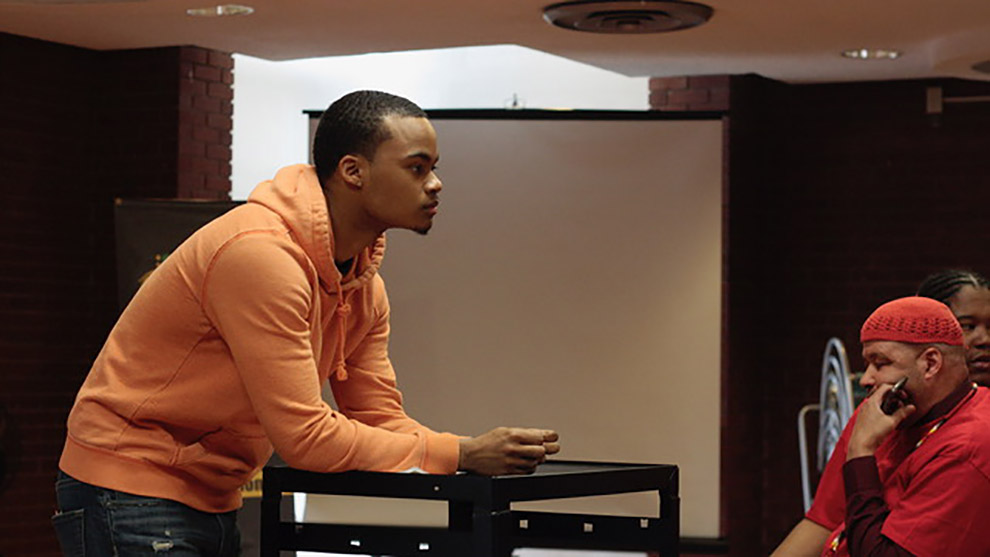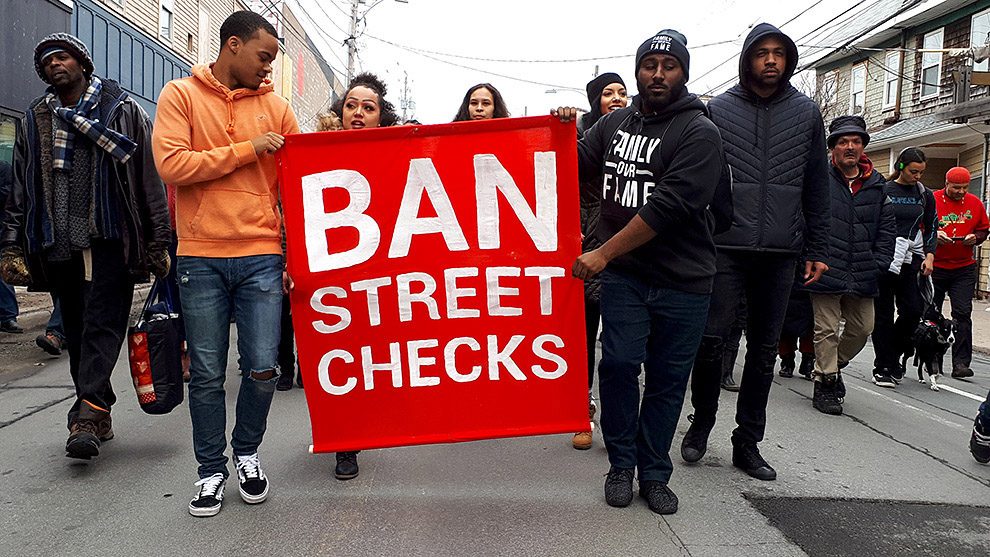Trayvone Clayton stands for equality
'I'm just trying to help the black community'

caption
Trayvone Clayton wants police to stop street checks.Trayvone Clayton can’t forget the time he was walking down the street in Halifax’s south end when he was stopped by a police officer. He was 16.
“He tried to grab me; I didn’t allow it. Then he put me in the choke hold, put my face against the ground and my face was bleeding and my shoulder was bleeding as well,” says Clayton.
He says a week before that happened, his father told him to read the Charter of Rights and Freedoms, but he didn’t take it seriously.
Now, prompted partly by his own experience, the Saint Mary’s University student is speaking out against racial profiling. He’s become a strong voice in the African-Nova Scotian community by fighting to bring down racial barriers. Related stories
“I wouldn’t say that I’m an activist,” says Clayton. “I’m just trying to help the black community around Canada, that’s what I’m in it for, to get equal opportunities.”
Clayton, 20, was born and raised in Halifax in Uniacke Square. He says it was a great area to live in because everyone knows one another and treats everyone with respect.
He’s in his second year at university studying criminology and plays on the Saint Mary’s basketball team.
Through the YMCA on Gottingen Street, he coaches a basketball team for children under 12 years old.
“As a coach, we are in there for a game of basketball, but at the same time, I’m there to give back to the community because at the end of the day, those kids might look up to me,” says Clayton.
Earlier this year, Clayton attended the National Canadian Black Summit in Ottawa, one of the few participants from Nova Scotia. He says everything was going well until the group was racially profiled by a worker on Parliament Hill.
“They said ‘I’m not trying to sound racist or anything, but the dark-skinned group on the fourth floor, they gotta leave, they can’t be here no more.’ It stuck to me and it really hurt me,” says Clayton.
“That event at Parliament was a sign to wake up and see how they treat us.”
Clayton decided to write a post about it on Facebook. Word spread. Sen. Wanda Thomas Bernard filed a complaint, prompting an investigation.
The message eventually reached the prime minister of Canada, Justin Trudeau.
When Trudeau came to Halifax, Clayton organized a private meeting with him to discuss racial issues in Canada and look for potential solutions to overcome systemic racism.
“At first, I wanted to make the meeting public, but the youth wasn’t going to get a chance to speak because there would’ve been a lot of elderly people that would bring the problems of the past. But we can’t focus on the past, we have to think about the future,” says Clayton.
Clayton says Trudeau apologized for the incident on Parliament Hill and took the time to listen. He expects they will remain in touch.
He says young African-Nova Scotians need to be active. On March 30, he took part in a rally calling for the end of street checks by police.

caption
Trayvone Clayton (left) leads the march to stop police checks by police.After completing his degree, Clayton plans to go to law school.
Clayton is “very rare and unique,” says Stephen Nelson, program director for junior leaders and youth leadership development at the YMCA. He has known Clayton his entire life.
“He is a walking message out there and he has been a role model to a lot of people in the community.”

A
Angee
C
Claudine Sampson